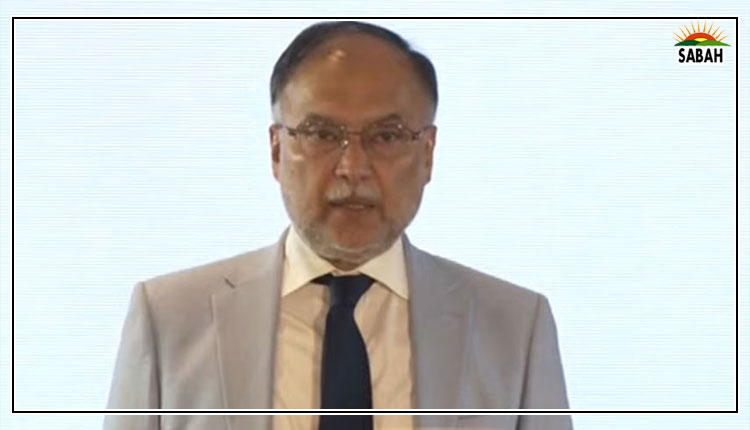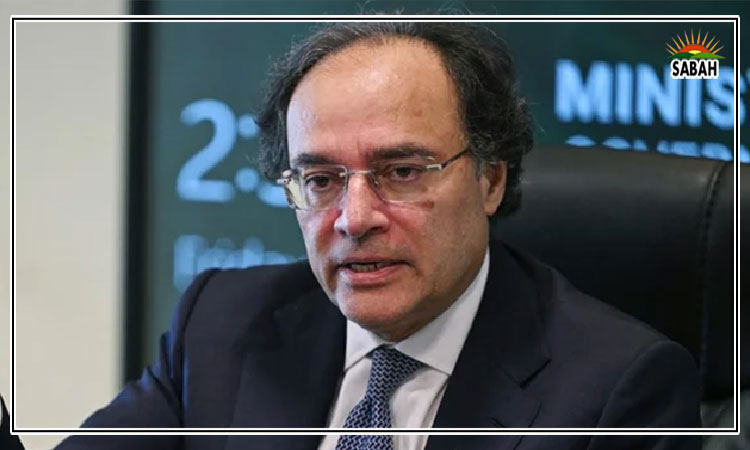The business of education…Dr Riaz Ahmed
Karachi University is to hold its Senate session at the end of December. The last such session was held in 2018. The University Act mandates at least one Senate session per year because the prime function of the Senate is to consider and approve the budget for the forthcoming financial year.
From 2018 to 2023, Karachi University spent Rs40 billion the 2022-23 expenditures were Rs8 billion all without the approval of the budget by the Syndicate or the Senate. Half of the budget has been student fees, and the rest public money from federal and provincial governments.
The University of Karachi entrance gate. APP/File
The University of Karachi entrance gate. APP/File
So, what happened between 2018 and 2023? And how was Karachi University run without financial approval? This question not only answers the crisis faced by Pakistani universities but is also about the role of government in running and administering public and private universities. After all, higher education is fundamental to our future and if universities are run on an ad-hoc basis for years then the future is indeed dark and so is the present.
Public-sector universities are run according to acts of parliament, both federal and provincial. Most universities have acts that originated in 1972, with almost all now being run through their mutations in the 1980s and 2000s. These acts created structures that distributed academic and financial decision-making powers to permanent faculty members. As a result, there are four statutory bodies in varsities: the Selection Board to hire new faculty, the Academic Council to launch new degrees, admit and examine students and approve fees, the Syndicate to propose statutes/recommend budgets and administer the university, and the Senate to approve budgets and statutes proposed by the Syndicate.
Usually, the vice-chancellor being the administrative head runs the show, and generally, the University Act is ignored, and the Academic Council and Syndicate sessions are called once a year instead of every month and the Senate is called every five years instead of at least twice a year. As a result, vice-chancellors make decisions single-handedly or through the support of their cohorts. The chancellors, who are the appointing authority of the VCs and deans, ignore these violations.
The federal and provincial governments rely on the Higher Education Commission. Even the courts tend to call the HEC when evaluating matters such as the appointment of professors and vice-chancellors when disputed.
On the one hand, the violations of Acts by public-sector universities, where appointments of administrative heads are made by provincial or federal heads of government chief minister and the prime minister, respectively are ignored by the government. On the other hand, this ignorance stems from the changing view of public-sector universities by lawmakers.
Most political parties view higher education as a business and even in public-sector universities the policies of the government officially encourage varsity heads to increase income from their own sources. This relieves the government of the financial burden that was to be shouldered by it. This is why vice-chancellors are evaluated by the HEC for following this policy of internal privatization. The role of the state in providing access to higher education to the people has now been reduced to appointing vice-chancellors and providing 50 per cent of the budget.
Private-sector universities have now become role models for modern-day vice-chancellors of public-sector universities. In the private sector, the seth (business owner) runs the show with figurehead vice-chancellors/deans/directors, on-paper Academic Councils, and Syndicate/Senate. The policies for academics, admissions, and examination are actually dictated by the seth. Ninety per cent of the faculty is visiting or part-time with no rights at work and the permanent faculty lives on a knifes edge fearing any criticism will invoke the seths wrath.
There are Boards of Governors or Executive Boards with complying members whose main qualification is their public relations expertise. The state being funded by multilateral agencies is bound to encourage private-sector higher education. Therefore, like other aspects of private business, it never interferes with evaluating the incomes of these businesses or their quality of education. The seth is responsible for generating the income, expenditures, and viability of this business.
The modern-day public-sector vice-chancellor has also gradually acquired the norms of the private-sector seth. Right from the appointment of the vice-chancellor by a Search Committee constituted by the chief minister/prime minister to the day-to-day affairs of the varsities, cronyism, favouritism, and nepotism reign supreme. In the private sector, even vice-chancellors are summarily dismissed so they dare not challenge the seths decisions. And so at public-sector varsities, the absence of meetings of the Academic Council, Syndicate, and Senate are happily ignored by the appointing authorities which makes the vice-chancellor of a public-sector varsity act like a seth.
Statutory bodies like the Academic Council and Senate comprise 90 per cent university professors and only 10 per cent of government appointed people including the VC. Bypassing statutory bodies or making them dysfunctional allows the vice-chancellor to exercise powers not granted by the varsities laws. As a result, varsities face an enormous financial and academic crisis.
The decline of standards was addressed in 2003 and then in 2018 by the introduction of the HEC as a regulatory body and by the amendments to provincial varsity acts by the provincial governments. These measures have terribly backfired and resulted in increased bureaucratic interference and white-collar corruption by the babus at the HEC and provincial university boards or commissions.
The crisis of higher education is actually reducing space for poor but bright students, with fee increases and public-sector university infrastructure collapsing. The private sector making education a business has all but complemented the rot we are in at present. It is time democracy is restored at public-sector universities, chancellors are made accountable by parliament, and varsities are run per the law.
Courtesy The News












